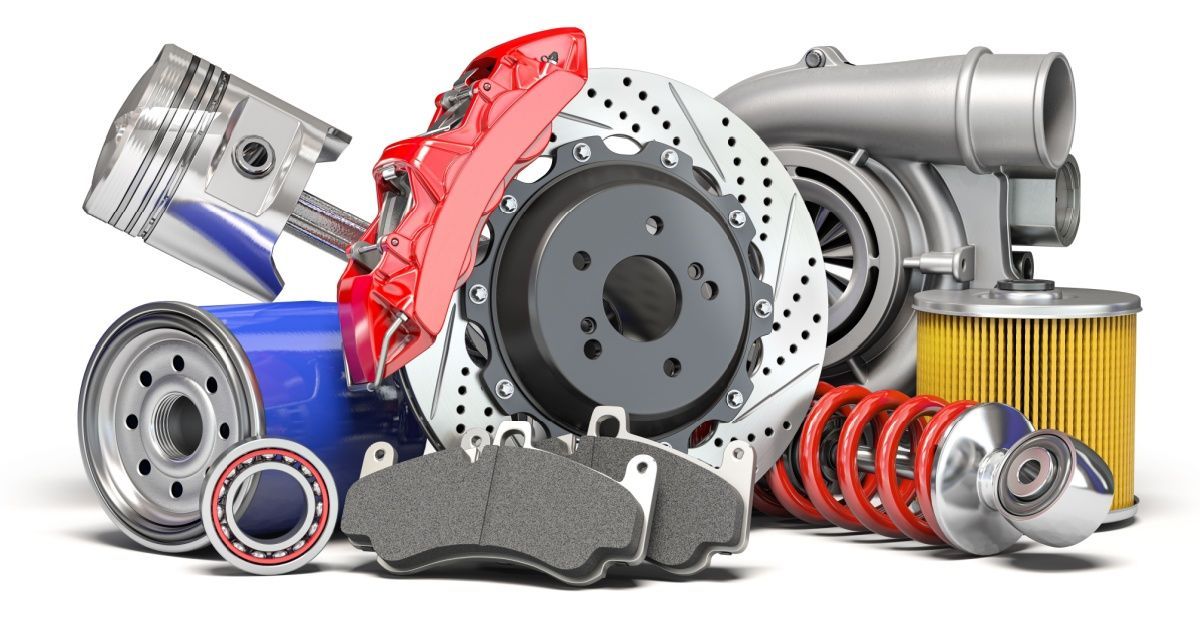How Expedited Trucking Can Help Speed Up Production Lines
Blog Post CTA
Imagine hitting a turbo button on your production line, where downtime shrinks, deliveries speed up, and your entire operation swiftly pivots to meet the market's ever-changing demands. We aren't talking about a feature from the latest Nintendo game; it's the reality of leveraging expedited trucking in the real world. With this service, you've got a secret weapon in the competitive arena of logistics and supply chain management, ensuring your products don't just reach their destination on time but do so in a way that keeps your business a step ahead.
Diving into the world of expedited trucking, we uncover its critical role as not just a fast delivery service but a strategic asset that boosts your production efficiency. It's about turning potential logistical nightmares into opportunities for growth and profit. Expedited trucking ensures that every second counts, translating directly into savings and earnings for your business.
Accelerating Production Through Expedited Trucking
Expedited trucking ensures fast and reliable transport. But where it shines is in keeping production lines moving smoothly by linking raw materials directly to production needs, helping businesses stay nimble and ahead of the curve. The benefits transcend speed; they keep operations seamless and responsive to every opportunity and challenge.
Minimizing Production Delays
Suppose you're at the helm of a food manufacturing plant and in the final stretch of preparing a large shipment of frozen pizzas for a national grocery chain. Everything goes smoothly until you discover you're short on a critical ingredient: high-quality mozzarella cheese. The clock is ticking, and the absence of this key component could delay your entire production, risking your delivery deadlines and, ultimately, your relationship with the grocery chain.
That's where expedited trucking steps in, not just as an
innovative delivery solution but as the savior of your production line. Perfectly suited for those moments when
time isn't just money but everything, it ensures that the missing mozzarella cheese is transported from the supplier to your facility with no time to waste, turning a potential production halt into a minor hiccup.
This rapid response service isn't about mere speed;
it's about smart logistics—prioritizing your urgent needs, choosing the fastest routes, and allowing you to maintain just the right level of inventory. This agility keeps your operations flexible and ready to face planned and unplanned challenges head-on. With expedited trucking, it doesn’t matter whether you’re dealing with an unexpected spike in demand or overcoming supply chain disruptions.
Enhancing Supply Chain Responsiveness
Expedited trucking emerges as the secret weapon in your production arsenal, effortlessly steering through abrupt market shifts and supply chain complications. This dynamic service empowers businesses with the agility to adapt quickly—be it rushing a last-minute supply or managing a surge in orders—to minimize delays and maintain optimal inventory levels. In today's market, where consumers demand increasingly personalized products, swiftly adjusting production lines becomes crucial. The stakes are high, with personalization driving a 10% to 15% increase in revenue. Salesforce research emphasizes this trend, with 66% of consumers expecting companies to anticipate their unique needs. Thus, there’s a need for flexible production lines, with expedited trucking stepping in to meet these evolving demands. It ensures that companies remain versatile, operations are smooth, and commitments to on-time delivery are solid, regardless of the challenges ahead.
Strategic Advantages of Expedited Trucking for Manufacturers
Expedited trucking is more than just a fast lane for shipping; it's a strategic powerhouse that perfectly complements Just-in-Time (JIT) manufacturing. This dynamic duo revolutionizes how manufacturers approach production, slashing inventory costs and minimizing waste in a way that's both efficient and sustainable.
JIT Manufacturing's Best Friend
At the heart of JIT manufacturing is the goal to produce what's needed right when it's needed, eliminating the cost and clutter of unused stock. Expedited trucking stands out here, delivering materials precisely on schedule and ensuring their arrival just when the production line needs them. This tight coordination between manufacturing and logistics not only keeps inventory lean—significantly cutting down on holding costs—but also streamlines the entire production process.
Moreover, with expedited trucking, manufacturers can reduce unnecessary inventory, leading to lower shipping costs, reduced storage expenses, and more space for productive use. Efficiency in logistics is key; an average automotive manufacturer can face up to 800 hours of downtime annually,
with costs soaring to $22,000 per minute when production stalls. Expedited trucking's knack for timely delivery,
seen in industries like Toyota's automotive production, aligns with JIT to keep those costs at bay, proving its weight in gold by maintaining a continuous, cost-effective production flow.
Strengthening Vendor Relationships
The strategic value of expedited trucking extends beyond the factory floor, strengthening the bond between manufacturers and suppliers through dependable, predictable delivery schedules. This level of reliability is non-negotiable, especially in B2B relationships where every minute counts. Expedited trucking's ability to quickly transport shipments reduces the need for large inventory reserves, allowing businesses to operate more leanly and responsively. This operational efficiency doesn't just boost the bottom line; it enhances the customer experience and positions a company as a reliable partner in the eyes of suppliers. For instance, a company based in the U.S. could compete head-to-head with competitors physically located in Canada by offering a dedicated expedited solution.
Streamlining Production with Expedited Trucking
Integrating expedited trucking into your production line management can transform how you meet deadlines, manage inventory, and satisfy customer demands. However, This strategic move requires careful consideration to ensure it aligns with your production needs and benefits your overall efficiency.
Selecting the Right Expedited Trucking Provider
Choosing the right expedited trucking provider is a critical first step in enhancing your production line. Look for a partner with a solid track record in urgent shipping, capable of accommodating last-minute demands while maintaining on-time delivery. Assess their range of services and transit times and understand the costs involved. It's vital to consider their coverage area and whether they offer real-time tracking capabilities, allowing you to monitor your shipments closely. Additionally, ensure they adhere to stringent security measures and comply with industry regulations, as the safety of your goods and adherence to legal standards are non-negotiable. Customer service should also be a key criterion; responsive support is essential for swiftly addressing any issues.
Weighing Costs Against Benefits
While expedited trucking offers undeniable speed and reliability, it comes at a premium. Balancing these benefits against the cost is key to making it a viable part of your logistics strategy. Expedited deliveries can enhance customer satisfaction and give you a competitive edge by allowing you to adapt quickly to market demands. However, it's essential to craft cost-effective strategies to mitigate the higher expenses associated with expedited services. Measuring the return on investment (ROI) is critical in this context. Calculate the ROI by comparing the net profit generated from expedited deliveries against the total cost of these services. This analysis will help you understand whether the speed and efficiency of expedited trucking translate into tangible value for your business, ensuring your production line remains competitive and responsive.
Sector-by-Sector: How Expedited Trucking Enhances Production Efficiency
Let’s tie it all together with a brief look at how expedited trucking plays a key role in enhancing production line efficiency across various sectors. Consider the following hypothetical examples:
Automotive Industry: Imagine a car manufacturer preparing to launch a new model. The production schedule is tight, and any delay could lead to significant financial losses. In this scenario, expedited trucking could ensure that essential parts and components arrive just in time for assembly, supporting the tight production schedule and ensuring a successful launch.- Healthcare Industry: Consider a hospital experiencing a sudden surge in patient numbers due to an unexpected health crisis. The hospital urgently needs additional medical equipment to cope with the increased demand. Expedited trucking could play a vital role in delivering the required equipment promptly, enabling the hospital to meet the surge in demand and provide necessary care to patients.
- Retail Sector: Picture a retail store preparing for the holiday season. The store needs to manage its inventory effectively to meet the expected increase in customer demand. Expedited trucking could deliver additional stock quickly, helping the store manage its seasonal inventory challenges and meet customer expectations.
- Manufacturing: Visualize a manufacturing company that relies on various components to produce its products. A delay in the delivery of any component could lead to costly production delays. In such a case, expedited trucking could ensure the timely delivery of components, preventing production delays and associated costs.
- Food Industry: Think about a restaurant that prides itself on serving dishes made from fresh, high-quality ingredients. Any delay in the delivery of these perishable ingredients could impact the quality of the dishes served. Expedited trucking could ensure these ingredients' freshness and timely arrival, enabling the restaurant to maintain its high standards.
-
Enhance Your Production Line With Entourage Freight Solutions
Expedited trucking is essential for keeping your production line moving smoothly and swiftly. It's not just about speed; it's a strategic tool to avoid downtime and increase efficiency, giving you an edge in today's competitive market. Whether dodging delays or adjusting to sudden market changes, expedited trucking has your back, ensuring your business remains adaptable and on track.
Entourage Freight Solutions (EFS) offers many
expedited trucking services
designed to meet these diverse needs. Whether you need
Full Truckload,
Less Than Truckload,
Refrigerated Trucking, or something more specific like
Special Projects, EFS has you covered. With a commitment to leveraging the latest technology for real-time tracking and efficient freight management, EFS operates around the clock to be there whenever you need them.
Need a logistics partner to help keep your operations running smoothly and respond to the market's demands?
Contact Entourage Freight Solutions today for a quote and see how expedited trucking services can boost your supply chain and keep your business competitive.
.









